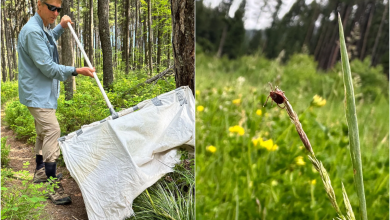Worsening Allergies? Scientists Say Climate Change Is Making Pollen Seasons Longer and More Intense
Worsening Allergies? Why Pollen Season Feels More Brutal Than Ever

If you've spent this allergy season sneezing, sniffling, and rubbing your eyes more than you can remember, you are not imagining it. For many, allergy symptoms have become noticeably more severe, and scientists have a clear explanation: human-caused climate change is creating longer, more intense pollen seasons.
As we move past the peak of the fall allergy season, which is dominated by ragweed pollen, many are still feeling the effects. Here’s the science behind why your allergies are getting worse and what you can do to find relief.
The Link Between Climate Change and Your Allergy Symptoms
According to researchers, two key factors driven by climate change are creating a perfect storm for allergy sufferers:
- Longer Growing Seasons: Warmer temperatures allow plants like ragweed to start growing earlier in the spring and continue producing pollen later into the fall.
- Increased Carbon Dioxide (CO₂): Higher concentrations of CO₂ in the atmosphere act like a steroid for pollen-producing plants.
Dr. Lewis Ziska, an associate professor at Columbia University, explains that the fossil fuel emissions driving climate change are supercharging the very plants that make us miserable. "As CO₂ increases, it can stimulate the growth of plants, and one of the plants whose growth is stimulated is ragweed," he said.
The Double-Whammy: More Pollen, and More Potent Pollen
The impact of increased CO₂ goes beyond just stimulating plant growth. Groundbreaking research shows it has a two-fold effect that directly impacts the severity of your allergy symptoms:
The Evidence: Longer Seasons, Higher Pollen Counts
The data backs up what many are feeling. A comprehensive study published by Dr. Ziska and his colleagues found that from 1990 to 2018 in North America, climate change has led to a "substantial intensification of pollen seasons."
The staggering results show that, on average, pollen seasons now:
Researchers concluded that climate change was directly responsible for about half of the lengthening of the pollen season and 8% of the increase in pollen concentration.
Tips for Surviving a Tougher Allergy Season
While Dr. Robert Hartzler of Iowa State University admits "there really is no escaping the pollen," there are strategies you can use to minimize your exposure and reduce symptoms.



